The blue carbon investment
Last year was the hottest on record for the world’s oceans, so how can blue carbon initiatives from the superyacht community help protect them?
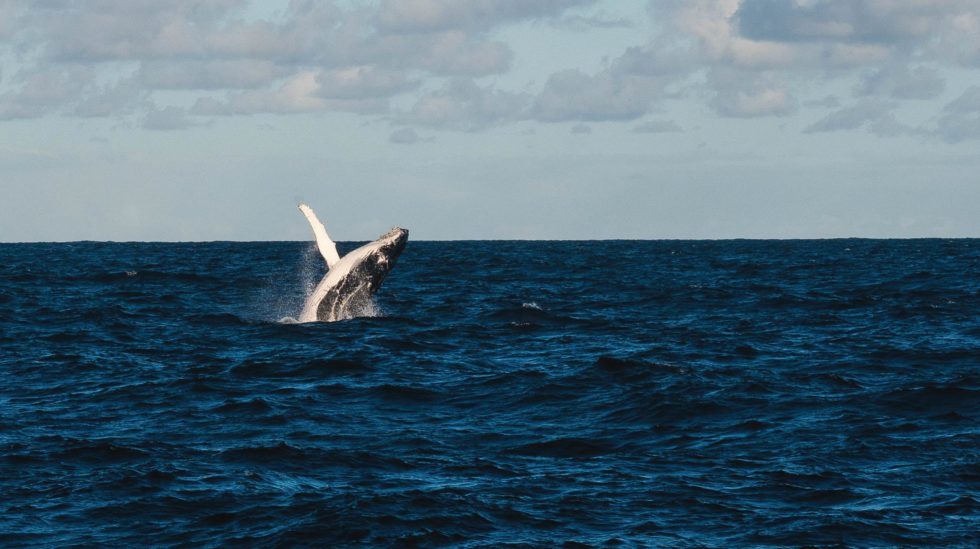 Image credit: Water Revolution Foundation
Image credit: Water Revolution Foundation
Annual research produced by 17 institutes across the globe was published in Advances in Atmospheric Sciences’ New Record Ocean Temperatures and Related Climate Indicators paper this month, which found that 2023 was the fifth consecutive record-breaking year for the highest ocean temperatures. The global sea surface temperature reached its historic high in 2023 with an annual mean of ∼0.23°C higher than in 2022.
This comes with recently published research from the EU Climate Service that global warming has exceeded 1.5°C across an entire year for the first time, bringing us dangerously close to the long-term increase limit set in the Paris Agreement.
These high temperatures are just one of the many difficulties the oceans are experiencing due to human activity. Alongside other issues such as islands of plastic pollution and their impacts on marine life, and the loss of biodiversity, rising ocean temperatures will have far-reaching effects such as coral bleaching and reduction of Antarctic sea ice, which hit record low levels in 2023. All these negative changes put at risk the very setting of the superyacht experience.
 Image credit: Advances in Atmospheric Sciences
Image credit: Advances in Atmospheric Sciences
Yachting and other maritime industry exposure to the oceans can also lead to many other specific, more localised impacts that should be mitigated and reduced, such as anchoring in fragile areas, direct sea discharge of toxic emissions and transference of invasive species.
It’s these types of ocean damage that are particularly ironic given the reliance of these industries on the ocean. Yachting is no different – degrading this vital resource will have an impact on the guest experience. No one wants to yacht within a sea of plastic or one that is devoid of life or without any seafood to enjoy.
Not only do the oceans provide various aspects that are crucial to the superyacht experience, but they also have benefits that are less tangible. Globally, our oceans produce more than half of the oxygen we breathe and absorb about 30% of all our carbon dioxide emissions.
While absorbing carbon helps reduce the greenhouse effect, it has a knock-on impact of negatively altering the chemical composition of the oceans. Some 83% of the global carbon cycle is circulated through the ocean. Carbon stored in the ocean and its ecosystems is called ‘blue carbon’, as opposed to the ‘green carbon’ we are familiar with on land, such as planted trees.
It’s through investing in increasing this blue carbon, similar to planting trees, that we can look to protect our oceans and ensure their future health for generations to come, and thus continue to reap what it can provide to us.
Investment in blue carbon regeneration can take many forms, including the development and expansion of seagrass beds, kelp forests, oyster farming and salt marshes, or mangrove restoration. Expanding these different ecosystems will increase the amount of carbon stored through the different organisms, helping to bring down the amount of carbon in the atmosphere, leading to reduced greenhouse gas effects and curbing the rise in temperatures across the globe. A great example of blue carbon investing is in seagrass, as it is fast growing and has the potential to be up to 40 times more efficient at capturing carbon than land forests.
Supporting these projects will also allow marine biodiversity to bounce back; for example, coral in Australia’s Great Barrier Reef has shown its resilience and ability to bounce back and recover from bleaching events.
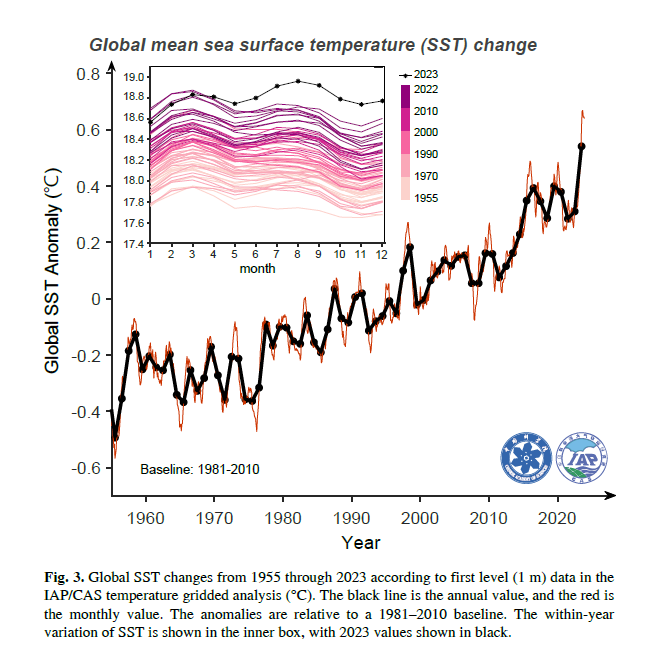 Image credit: Advances in Atmospheric Sciences
Image credit: Advances in Atmospheric Sciences
International Seakeepers and Yachts for Science are some of the groups working with the yachting industry to support ocean advocacy and conservation to contribute to ocean protection. International Seakeepers Society is working with the Ocean Rescue Alliance International to implement techniques to restore marine environments. The project involves creating and maintaining artificial reef sites to build marine habitats, as well as restoring coral in natural reefs. Meanwhile, Yachts for Science was involved with Project Seagrass in the Solent, investigating the effectiveness of different planting techniques.
Water Revolution Foundation is also providing the industry with a specific blue carbon/ocean regeneration funding channel through its Ocean Assist Programme. Ocean Assist provides the yachting industry with a channel to direct funds for reinvestment into the ocean which will then go to selected marine conservation and restoration projects that independent scientists have verified to ensure maximum impact on efforts for ocean conservation and restoration. The first verified project is the Important Marine Mammal Areas programme, which is working to identify, protect and conserve the most important marine habitats for marine mammals, which in turn will protect a variety of valuable blue carbon.
We are all aware of the benefits of the ocean; along with those specifically identified here are some of the many reasons that should motivate us to protect our oceans. The importance of ocean health is echoed by the inclusion of maritime ecosystems within the UN’s Sustainable Development Goals (SDGs). SDG 14, Life Under Water, is the goal to “conserve and sustainably use the oceans, seas and marine resources for sustainable development”. Alongside this, 2021-2030 is the UN’s Decade of Ocean Science for Sustainable Development. Through supporting the different groups and methods mentioned, we can give our marine environment the chance of a healthy future.
Profile links
NEW: Sign up for SuperyachtNewsweek!
Get the latest weekly news, in-depth reports, intelligence, and strategic insights, delivered directly from The Superyacht Group's editors and market analysts.
Stay at the forefront of the superyacht industry with SuperyachtNewsweek
Click here to become part of The Superyacht Group community, and join us in our mission to make this industry accessible to all, and prosperous for the long-term. We are offering access to the superyacht industry’s most comprehensive and longstanding archive of business-critical information, as well as a comprehensive, real-time superyacht fleet database, for just £10 per month, because we are One Industry with One Mission. Sign up here.
Related news
-(3).jpg)
Crew guidelines go green
The superyacht industry has introduced technical solutions for energy transition, but changes in on-board practices are equally important
Crew
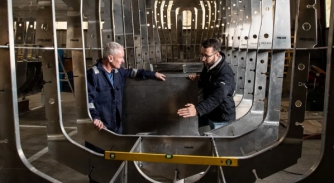
Archipelago Yachts secures government funding
The British boatbuilder has been granted funds to develop a bio-methanol-powered yacht, set to debut in 2025
Business
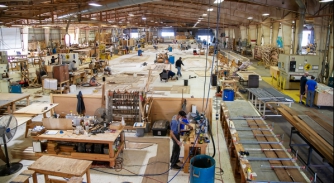
The teak critique
We analyse the sustainability of the desire for teak decking in view of the projected increase in demand from yachts in refit
Owner
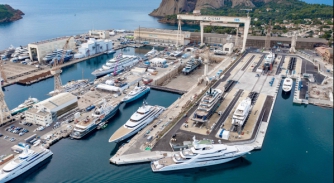
‘If we build sustainably, they will come’
MB92’s Rob Papworth and Philippe Bernard discuss the changing landscape of refit, new technologies and a shortage of skilled workers
Business

WRF features in Ocean Titans video series
Water Revolution Foundation (WRF) features in World Ocean Council video, to spotlight the intent and efforts of the industry to drive positive change
Owner
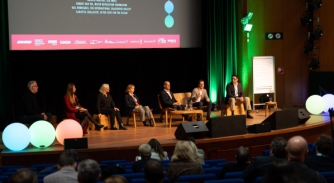
Collaboration and fragmentation: sustainability in the industry
On Ocean Day of The Superyacht Forum, sustainability-focused groups came together to clarify how the industry can push for positive change
Crew
Related news
Crew guidelines go green
2 years ago
Archipelago Yachts secures government funding
2 years ago
The teak critique
2 years ago
‘If we build sustainably, they will come’
2 years ago
WRF features in Ocean Titans video series
2 years ago
NEW: Sign up for
SuperyachtNewsweek!
Get the latest weekly news, in-depth reports, intelligence, and strategic insights, delivered directly from The Superyacht Group's editors and market analysts.
Stay at the forefront of the superyacht industry with SuperyachtNewsweek



